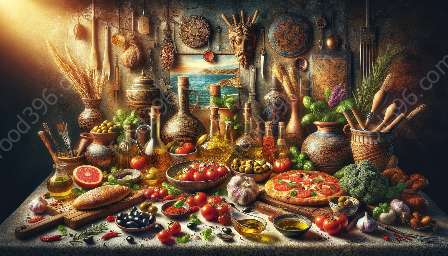Take a fascinating journey through the exquisite culinary traditions and techniques of the Mediterranean, a region steeped in history and culture. From the dawn of civilization to the modern-day, the flavors and techniques of Mediterranean cuisine have delighted food enthusiasts around the world.
The History of Mediterranean Cuisine
The Mediterranean region is renowned for its rich culinary history, dating back to ancient civilizations. As a crossroads of cultures, the Mediterranean has been influenced by various civilizations, including the Greeks, Romans, Phoenicians, and Arabs, each contributing to the diverse tapestry of Mediterranean cuisine.
With its abundance of fresh produce, seafood, and aromatic herbs, Mediterranean cuisine reflects the bountiful resources and culinary ingenuity of the region. The history of Mediterranean cuisine is a reflection of its people, their way of life, and the traditions passed down through generations.
Exploring Traditional Mediterranean Techniques
One of the defining features of Mediterranean culinary traditions is the emphasis on traditional techniques that have been perfected over centuries. From slow-cooking methods to the art of preserving, each technique tells a story of resourcefulness and creativity.
Preservation methods such as pickling, sun-drying, and olive oil curing have been integral to Mediterranean cuisine, allowing communities to enjoy the harvest year-round. These time-honored techniques are passed down through families, preserving not only the food but also the heritage and identity of the Mediterranean people.
The Flavors and Ingredients of the Mediterranean
The flavors of the Mediterranean are as diverse as the region's history, with each country offering its own unique culinary identity. Olive oil, a fundamental ingredient in Mediterranean cuisine, is used in abundance, adding depth and richness to dishes. Herbs such as oregano, thyme, and rosemary infuse dishes with aromatic flavors that are synonymous with the Mediterranean.
Seafood holds a special place in Mediterranean cuisine, with the region's proximity to the sea providing an abundance of fresh fish and shellfish. From the Spanish paella to Italian seafood pasta, seafood dishes showcase the culinary prowess of the Mediterranean.
Fruits, vegetables, and legumes also feature prominently in Mediterranean cuisine, celebrated for their vibrant colors and fresh flavors. Whether it's a Greek salad, Moroccan tagine, or Turkish mezze spread, the use of fresh, seasonal produce is a hallmark of Mediterranean cooking.
Modern Innovations in Mediterranean Cuisine
While rooted in tradition, Mediterranean cuisine continues to evolve with modern influences and innovations. Chefs and home cooks alike are experimenting with traditional recipes, introducing new techniques and flavor combinations that pay homage to the past while embracing the present.
With an increased focus on health and sustainability, contemporary Mediterranean cuisine emphasizes the use of fresh, locally sourced ingredients and lighter cooking methods. This evolution reflects an ongoing commitment to preserving the essence of Mediterranean cuisine while adapting to the demands of modern lifestyles.
From farm-to-table restaurants to artisanal food producers, the passion for Mediterranean cuisine is thriving, with a renewed appreciation for the heritage and techniques that have shaped this extraordinary culinary tradition.

